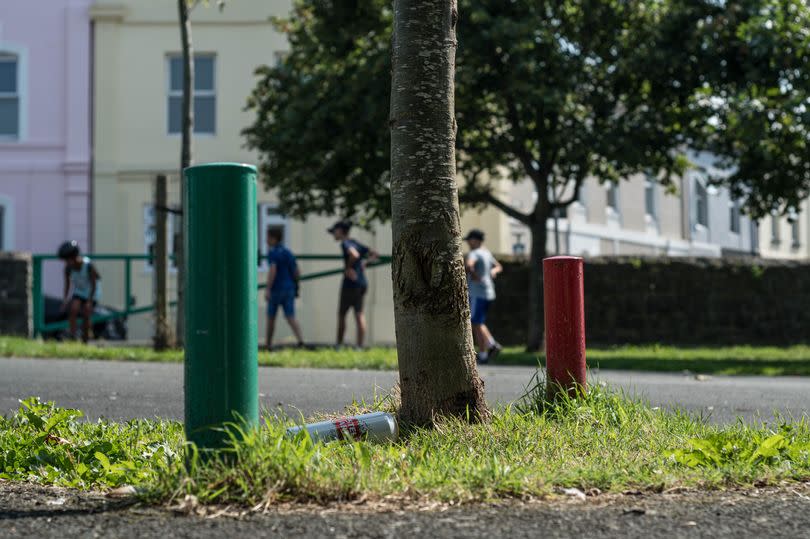Plymouth alcohol deaths on the rise, new map shows

Record numbers of people are dying from alcohol-specific causes in Plymouth, more than doubling since the pandemic. There were 44 alcohol-specific deaths in Plymouth in 2022, according to new figures from the Office for National Statistics.
That is up from 35 deaths in 2021. There were just 19 such deaths in our city in 2019 though, meaning the number has more than doubled since the pandemic.
The deaths in 2022 worked out as 16.5 for every 100,000 people living in Plymouth. That’s slightly above the England average of 14.5 per 100,000 and the Devon average of 13.3 per 100,000.
Read more:
Torbay has the highest rate in our region though, and one of the highest in the country. There were 32 alcohol-specific deaths in Torbay in 2022, which works out as 22.9 for every 100,000 residents.
You can see how your local area compares by using our interactive map:
There were 10,048 alcohol-specific deaths in the UK in 2022, up from just over 7,500 deaths in 2019. The shocking increase has further widened a North-South divide which sees alcohol killing people in Scotland and the North East of England at twice the rate of those living in London and the South East.
There were 1,276 alcohol-specific deaths in Scotland in 2022, which works out as 22.6 for every 100,000 people living there. The North East of England had 576 deaths, equivalent to 21.5 for every 100,000 people.
By contrast, London had 837 alcohol-specific deaths, which works out as 9.4 for every 100,000 people. That’s the lowest rate of any region in the UK.
The East of England had 687 alcohol-specific deaths, equivalent to 10.7 per 100,000, while the South East had 1,065 deaths (11.4 per 100,000), the South West had 736 (12.8 per 100,000).
The North West had 1,334 alcohol deaths in 2022 (a rate of 17.7), Yorkshire and The Humber had 926 (a rate of 16.7), West Midlands had 989 (a rate of 16.4), and the East Midlands had 762 (a rate of 15.4).
Lancaster has the highest rate of any local authority in England and Wales. There were a total of 43 alcohol-specific deaths in Lancaster in 2022. That works out as 29.8 per 100,000 people in the area.
South Tyneside had 44 alcohol-specific deaths, which works out as 29.6 per 100,000 people. Chorley had the next highest rate at 27.8 deaths per 100,000 residents, followed by Derby (24.3), Blackpool (24.0), Sefton (23.8), Sunderland (23.8), and Darlington (23.8).
Alcohol-specific deaths only include those health conditions where each death is a direct consequence of alcohol, such as alcoholic liver disease. It does not include all deaths that can be attributed to alcohol.
A spokesperson from the Department of Health said: “We are working to prevent alcohol deaths by ensuring people are given clear and accurate advice about the potential risks that are posed by drinking above the guidelines, including encouraging people to try more low and no-alcohol drinks.
“In addition, through our 10-year alcohol and drug strategy, supported by £532 million, we are helping up to 54,500 more people receive drug and alcohol treatment, and we are also funding specialist alcohol care teams at one in four hospitals in England.”
Dr Richard Piper, Chief Executive of Alcohol Change UK, said: “There were 10,048 deaths from alcohol in 2022 in the UK – an all-time high, up 4.2% on the previous year, and 32.8% higher than when compared to 2019. Each one of those deaths is a tragedy, representing a person who has had their life cut short and has left behind people who are grieving and miss them every day. We send our deepest sympathies to all those families and friends who have lost a loved one.
“Years of inaction on alcohol harm has led to this, and the heartbreaking thing is these deaths were totally avoidable. Our government has the responsibility and the power to put preventative measures in place, including proper regulation of alcohol marketing, clearer alcohol labelling, and a minimum price for a unit of alcohol. As part of a clear, long-term strategy to improve our health, these measures can prevent alcohol harm, protecting individuals, family members, communities and society – and crucially save lives in the future.”
Lancaster MP Cat Smith said: “Alcohol harm affects individuals, families and our communities. We have seen years of inaction on addressing these harms and these statistics are sadly a consequence of that.
"It shocks me how openly alcohol can be advertised, how difficult alcohol promotion can be to avoid in our supermarkets and I would like to see minimum unit pricing in place. Alcohol addiction is a disease which affects many families and more support for groups that help people beat addiction is needed.
“Unlike many other addictions, addiction to alcohol can be particularly difficult to live with when our culture is so entwined with drink. We could all do well to consider how we behave, talk and use language to help those living with addiction avoid alcohol. As for politicians, we need to fund services properly which support those who need to beat it.”

 Yahoo News
Yahoo News 
